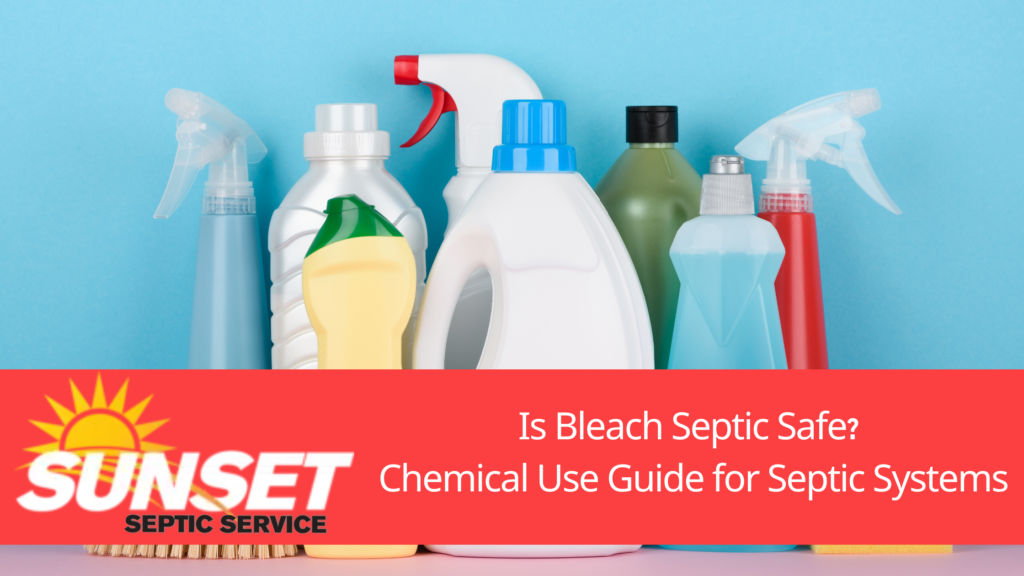As a homeowner with a septic system, you may find yourself wondering, “Is bleach septic safe?” You already know that proper maintenance is vital to keeping your system running smoothly. Unlike municipal sewer systems, septic systems require a bit of extra attention to ensure they don’t become clogged or damaged. You know not to flush things like feminine hygiene products, diapers, or even wipes with misleading “flushable” labels, but did you know your choice of cleaning products can affect your system?
A common question new homeowners often ask is, “Is bleach septic safe?” Find out why the answer to that question is both yes and no, and how you can protect your home from bacteria while also protecting your septic system from damage.
Is Bleach Septic Safe? The Answer Can Be Complicated
Bleach is a common household cleaner used for everything from laundry to cleaning bathrooms and kitchens. Unsurprisingly, this high-powered antibacterial wonder is a perennial cleaning favorite, but using too much can have serious adverse effects on your septic system.
Your septic tank has a natural biome that breaks down waste passing through your drains, and it’s highly dependent on a delicate balance of both good and bad bacteria. These tiny, vital microbes break down soap, organic waste, and contaminants flushed through your home’s plumbing system. Overly enthusiastic bleach use can leave your home as sterile as a hospital ward, but it can obliterate the bacterial presence in your septic tank.
When the beneficial bacteria are destroyed, your system can’t break down the waste as effectively as needed to keep the system functioning. The end results can be waste backing up into your home and damp, smelly patches on your lawn above your system’s drain field. Moderate use to keep bleach septic safe is possible; it’s important to be mindful of how much is used. For example, adding no more than ¾ of a cup to a load of laundry is acceptable and will not damage your septic system. A full gallon, on the other hand, is a recipe for septic system disaster.
Life After Bleach: Septic Safe Ways to Restore Bacteria to Your Septic System
While you may not have ever expected to find yourself seeking to add bacteria to anything related to your home, when it comes to your septic system, it can be a lifesaver. If you’ve been extravagant with the disinfectant use, it can be possible to reverse the effects on your septic tank’s biome by adding those beneficial bacteria back into the system.
Septic tank enzymes, for example, can significantly boost good bacteria levels and aid dramatically in the decomposition of waste. Before adding septic enzymes, however, it’s a good idea to work with a septic professional who can recommend the best course of action to reverse the effects of too much bleach.
Keeping Your Septic System Running Smoothly
When it comes to unpleasant experiences as a homeowner, few rank as high on the list as an unexpected septic system failure. Backups aren’t just smelly and unpleasant; they’re a safety hazard with the potential to damage the health and well-being of everyone in your household.
The good news is that preventing these failures doesn’t have to be complicated or stressful. Routine inspections and maintenance provided by knowledgeable septic professionals can keep you informed about the state of all the parts of your septic system you cannot see. In addition, a working relationship with these professionals allows you to ask questions like “Is bleach septic safe,” and “How can I protect the bacterial balance in my septic system?”
Sunset Septic understands the importance of maintaining a healthy septic system and has a team of expert professionals on staff to answer all your septic management needs. If you’re ready for a thorough septic system inspection and help keep it in peak condition, Sunset Septic can help.




